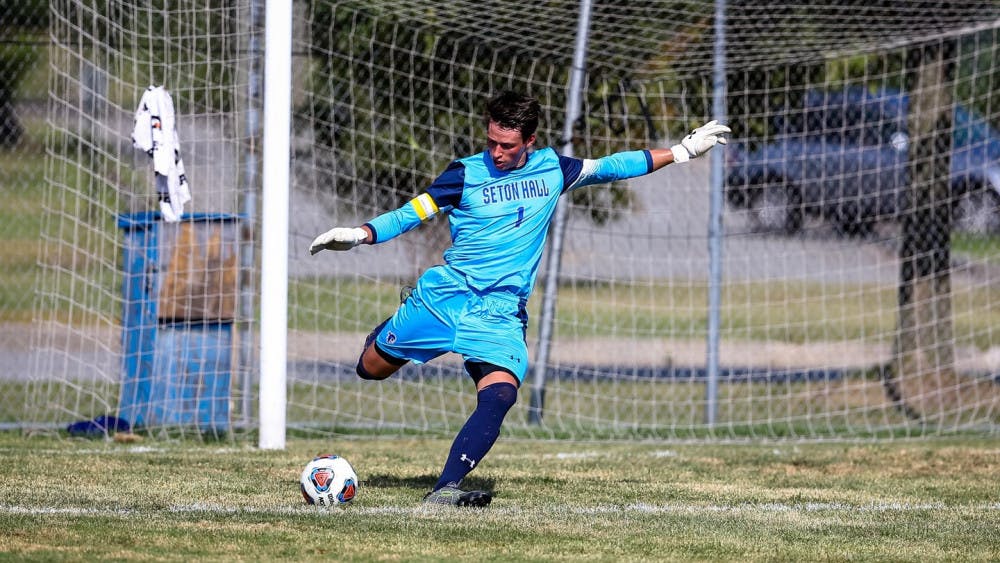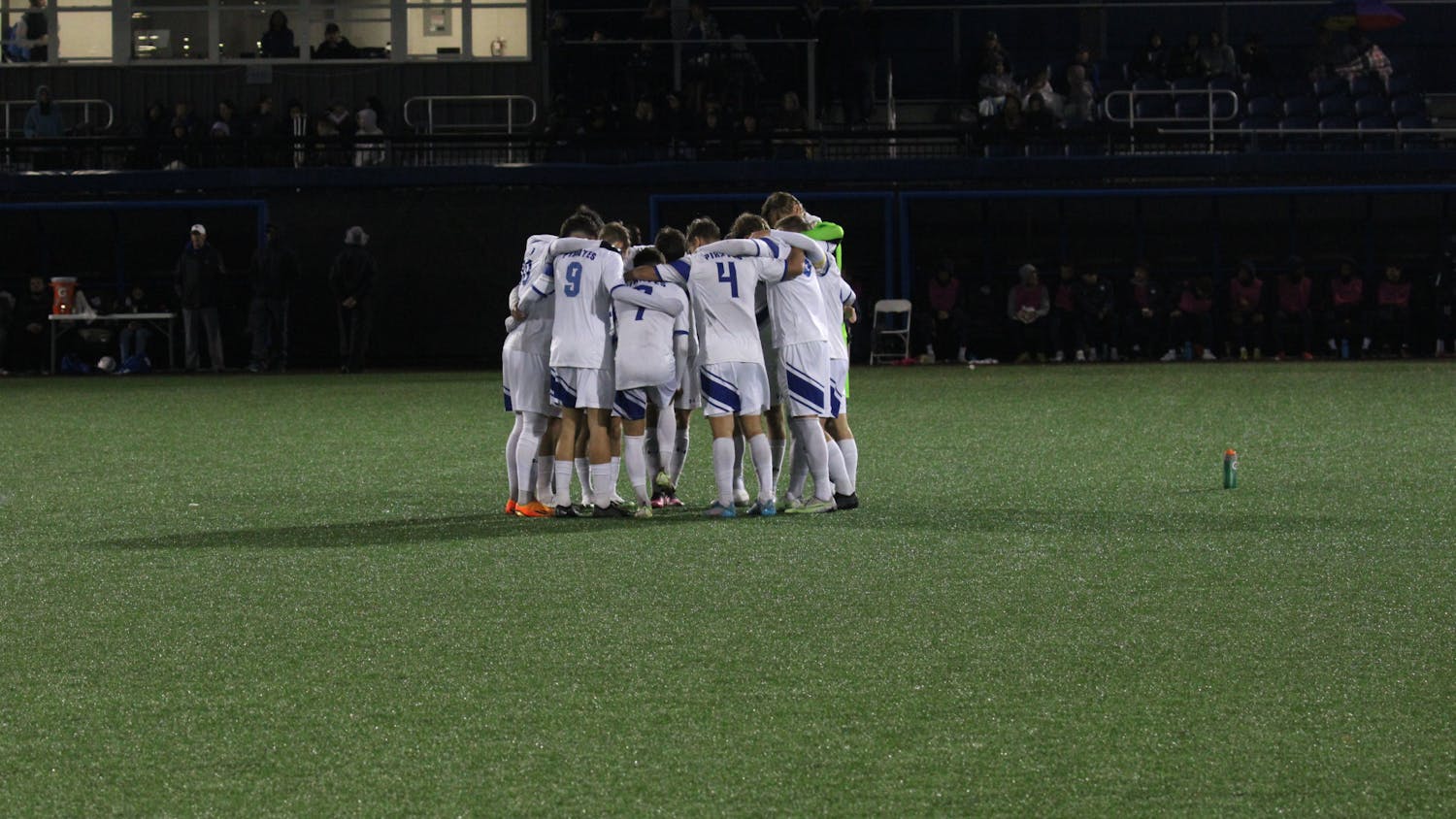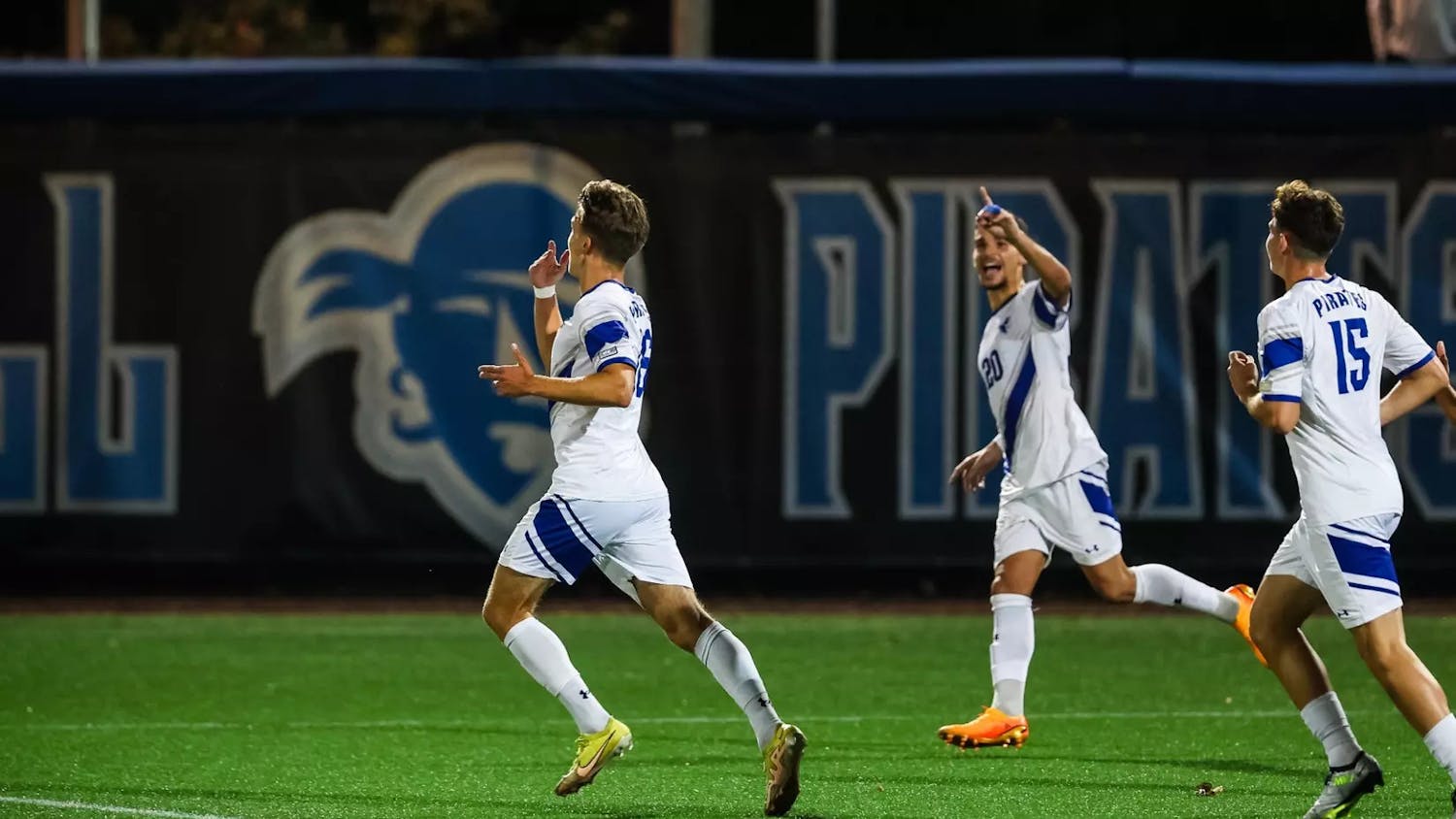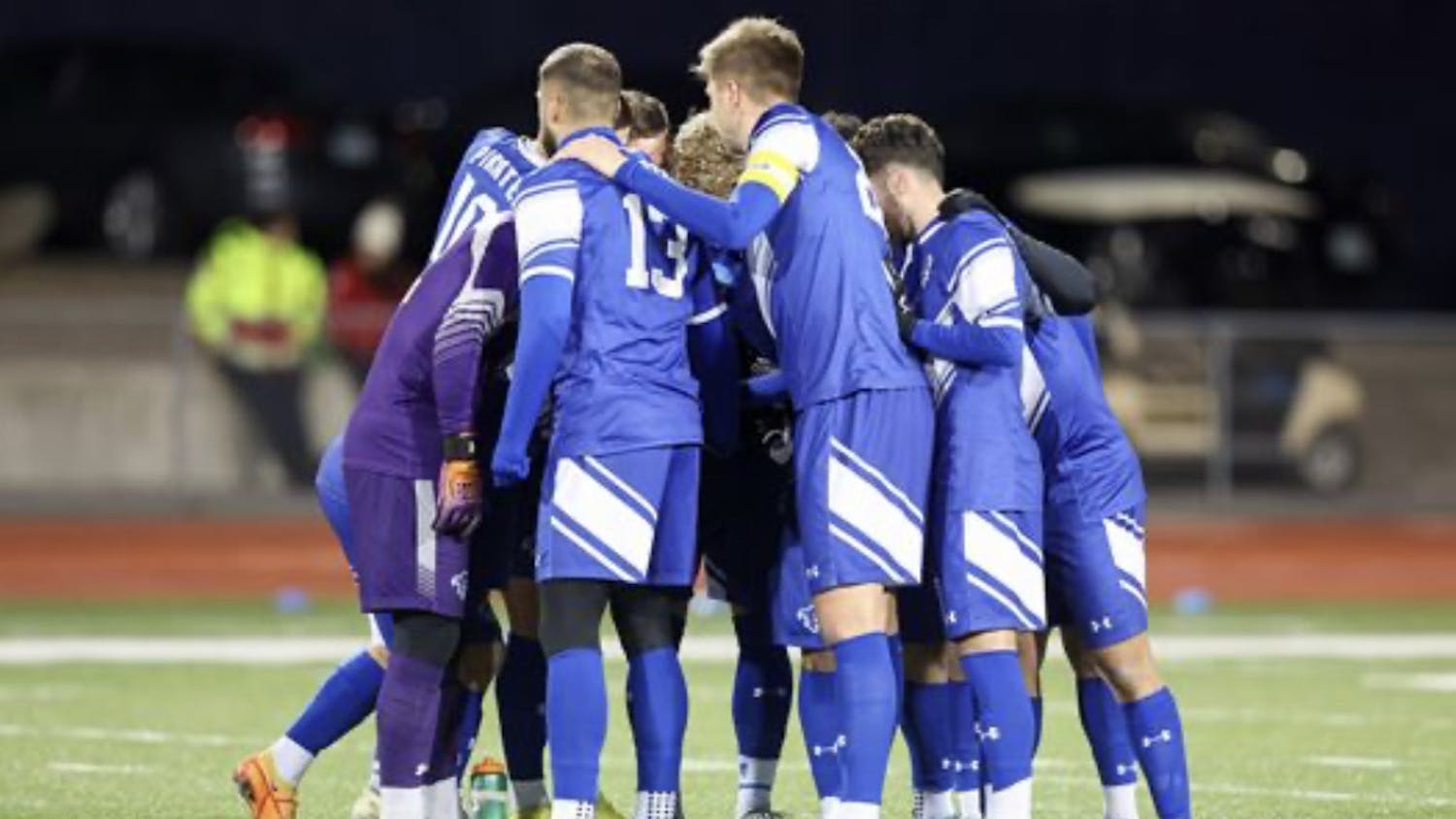[caption id="attachment_14955" align="aligncenter" width="1440"] via Seton Hall Athletics[/caption]
While SHU men’s soccer redshirt senior Danny Bartok has a 20-minute drive to get back to his home of Union, N.J., his teammate Francisco Alderete has a 13-hour flight to get to his home country of Salta, Argentina.
Of the 27 student-athletes on the Seton Hall men’s soccer team, eight players call countries outside of the United States home. Those players are Alderete (Argentina), Julian Spindler (Germany) Andres Arcila (Columbia), Jordan Kinoshi (England), Matheus Miranda (Brazil), Lukas Pangonis (Lithuania), Nathan Boatswain (Canada) and Pedro Neto (Brazil).
What makes Seton Hall such a pull for international talent?
Senior goalie Spindler cited the school’s program and the academic credibility.
“For me, it was really the program… a Division 1 school, and playing in a very competitive conference of the Big East Conference,” Spindler said of his draw to Seton Hall. “Then on the other side, you also have a good business school. It’s close to New York City, which is the financial capital of the world. I think that whole package, sports and academics, really made me choose Seton Hall.”
In fact, Spindler never visited the United States prior to coming to South Orange.
“I don’t have family here, so I actually have never been to the U.S. prior to deciding to come here [at Seton Hall],” Spindler said.
During his off time, Spindler likes to take the 8-hour flight to Germany to visit his family, which he jokes is “not that bad.” While time-consuming, traveling also costs money, and some Seton Hall players are not able to leave the U.S. very often.
“I’ve been in the U.S. for four years, and I went back to Brazil just twice,” senior transfer Miranda said. “So I don’t really go home that much. It’s really expensive actually to go back home, so I just stay here, try to find something to do during the summer. Usually I find a team to play with, or work.”
With players coming from so many different places coming onto one team, one issue that can come up is the language barrier.
“I knew English from school already,” Spindler said. “I think the German educational system does a pretty decent job in terms of getting people ready for language. However, it’s much different if you actually go to a country and have to speak English, because what you really learn in Germany is how you write and the grammar and all that stuff, but you don’t really know how to speak it.”
While Spindler came to America knowing English, Miranda came from Brazil not knowing a single word.
“For me, I never studied English in my life,” Miranda said. “Then I decided to come here, so I studied for eight months. I didn’t know anything before, so for eight months, all day, all I did was study English, then I finally came here. I could speak, I could understand really well, but I couldn’t speak it really well. So that was the toughest part for me, to learn the language.”
And of course, the change in food matters too.
“I think in terms of culture it’s much different,” Spindler said. “Simple things like food and stuff like that, I think that was tough to adjust to, but I think it went pretty quickly in terms of adjusting. I feel like after a couple months I felt pretty comfortable; living in a new culture, speaking the language.”
International players have an added layer of getting accustomed to their new surroundings, language and culture in the U.S., but they are drawn by the opportunity at Seton Hall and stay for the one-of-a-kind journey.
“I think what makes us unique as a team is we all come from a lot of different places,” Spindler said. “We have people from Brazil, from Columbia, from other parts in Europe. I personally enjoy that, just being around people from different backgrounds. I find that exciting...we all get along.”
via Seton Hall Athletics[/caption]
While SHU men’s soccer redshirt senior Danny Bartok has a 20-minute drive to get back to his home of Union, N.J., his teammate Francisco Alderete has a 13-hour flight to get to his home country of Salta, Argentina.
Of the 27 student-athletes on the Seton Hall men’s soccer team, eight players call countries outside of the United States home. Those players are Alderete (Argentina), Julian Spindler (Germany) Andres Arcila (Columbia), Jordan Kinoshi (England), Matheus Miranda (Brazil), Lukas Pangonis (Lithuania), Nathan Boatswain (Canada) and Pedro Neto (Brazil).
What makes Seton Hall such a pull for international talent?
Senior goalie Spindler cited the school’s program and the academic credibility.
“For me, it was really the program… a Division 1 school, and playing in a very competitive conference of the Big East Conference,” Spindler said of his draw to Seton Hall. “Then on the other side, you also have a good business school. It’s close to New York City, which is the financial capital of the world. I think that whole package, sports and academics, really made me choose Seton Hall.”
In fact, Spindler never visited the United States prior to coming to South Orange.
“I don’t have family here, so I actually have never been to the U.S. prior to deciding to come here [at Seton Hall],” Spindler said.
During his off time, Spindler likes to take the 8-hour flight to Germany to visit his family, which he jokes is “not that bad.” While time-consuming, traveling also costs money, and some Seton Hall players are not able to leave the U.S. very often.
“I’ve been in the U.S. for four years, and I went back to Brazil just twice,” senior transfer Miranda said. “So I don’t really go home that much. It’s really expensive actually to go back home, so I just stay here, try to find something to do during the summer. Usually I find a team to play with, or work.”
With players coming from so many different places coming onto one team, one issue that can come up is the language barrier.
“I knew English from school already,” Spindler said. “I think the German educational system does a pretty decent job in terms of getting people ready for language. However, it’s much different if you actually go to a country and have to speak English, because what you really learn in Germany is how you write and the grammar and all that stuff, but you don’t really know how to speak it.”
While Spindler came to America knowing English, Miranda came from Brazil not knowing a single word.
“For me, I never studied English in my life,” Miranda said. “Then I decided to come here, so I studied for eight months. I didn’t know anything before, so for eight months, all day, all I did was study English, then I finally came here. I could speak, I could understand really well, but I couldn’t speak it really well. So that was the toughest part for me, to learn the language.”
And of course, the change in food matters too.
“I think in terms of culture it’s much different,” Spindler said. “Simple things like food and stuff like that, I think that was tough to adjust to, but I think it went pretty quickly in terms of adjusting. I feel like after a couple months I felt pretty comfortable; living in a new culture, speaking the language.”
International players have an added layer of getting accustomed to their new surroundings, language and culture in the U.S., but they are drawn by the opportunity at Seton Hall and stay for the one-of-a-kind journey.
“I think what makes us unique as a team is we all come from a lot of different places,” Spindler said. “We have people from Brazil, from Columbia, from other parts in Europe. I personally enjoy that, just being around people from different backgrounds. I find that exciting...we all get along.”

Comments




